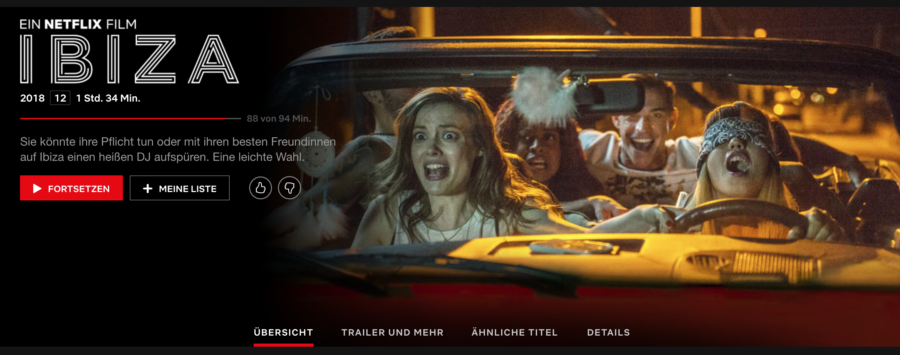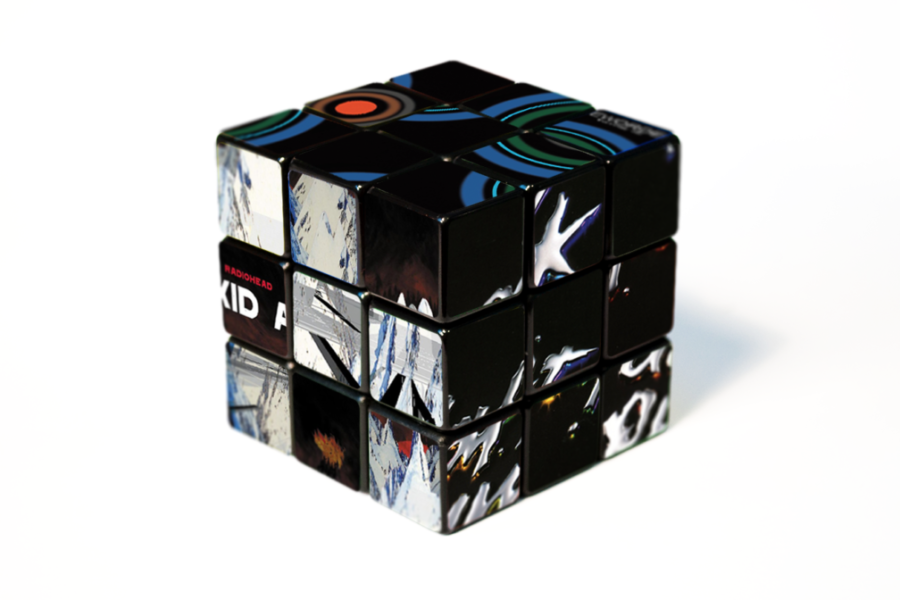Nine Inch Nails wurden am 7. Nov. diesen Jahres in die Rock&Roll „Hall of Fame“ aufgenommen. Meiner Ansicht nach hoch verdient und längst fällig. Eine persönliche Würdigung einer für mich sehr wichtigen Band.
Kategorie: Meinung und Kommentare

Recently, I stumbled across this album from 1982: „Synthesizing: Ten Ragas to a Disco Beat“ by the Indian musician Charanjit Singh. Due to the play of Indian ragas with the acid-synth, the Roland TB-303, and the steady disco beat this record could be considered one of (or even: the) first Acid-House-record – some authors do so. In fact, it pre-dates „Acid Tracks“ by Phuture, which is widely regarded as the first acid-track, by 5 years! That made me think: Do we need to re-write the history of acid house? Short answer: No, we don’t! But I wanna argue that we should think of aesthetic novelties such as acid house as a social process. Dan Le Sac and Scroobius Pip put it nicely in their song „Thou Shalt Always Kill“ (2007): „Thou shalt not put musicians and recording artists on ridiculous pedestals, no matter how great they are or were“.
My arguments is based on two line of thoughts: first, the distinction between an invention and an innovation, and second the specifics of „Acid Tracks“ compared to other, earlier 303-heavy tracks. Despite of my attempt to deconstruct myths of single persons ‚inventing‘ something new out of thin air, I still want and still am able to give credit where credit is due. And Phuture still deserve their credit 😉

Beitrag im Online-Magazin der AG Auditive Kultur und Sound Studies der GfM und Panel bei der Jahrestagung der GfM 2019
Im Online-Magazin der AG ist kürzlich ein Artikel von mir erschienen. In diesem hinterfrage ich zum einen kritisch die immer wieder aufgestellten Kontinuität zwischen den Turntable-Experimenten der künstlerischen Avantgarden in der ersten Hälfte des 20. Jh. (v.a. der Grammophonmusik, John Cage und Pierre Schaeffer) und den Turntable-Praktiken der Hip Hop-DJs seit den 1970er. Spoiler: es gibt keine Beweise. Ausgehend von der mangelnden Beweislage frage ich danach, welche Kontinuitäten es sonst gibt? Antwort: die Technik selbst und ihre Affordanzen. Was das heißt, kann im Beitrag nachgelesen werden (online und kostenlos).
übrigens: ich habe gemeinsam mit drei Kolleg*innen der AG ein Panel bei der Jahrestagung der GfM 2019 in Köln zum Thema ‚Medien-Materialitäten‘ eingereicht und es wurde angenommen. Dort werde ich mich ebenfalls der im Beitrag skizzierten Thematik der Affordanzen von Turntables widmen.

Netflix hat kürzlich eine eigene Filmproduktion herausgebracht: „Ibiza“ (Trailer). Plot: junge, kaum erfolgreiche PR-Frau aus NY kommt für einen beruflichen Auftrag nach Barcelona, verliebt sich in den „hotten“ EDM-DJ Leo West. Sie und ihre beiden mitgereisten Freundinnen entscheiden sich für YOLO, riskieren das Meeting am nächsten Tag und folgen ihm nach Ibiza. Es folgt eine ausgelassene, chaotische Clubnacht mit vielen Drogen, aber am Ende ist sie den eh verhassten Job los, bekommt trotzdem den Auftrag und natürlich auch den DJ. Oh, sorry fürs spoilern… Naja, große Plot-Twists sind eh nicht zu erwarten – das weiß man nach wenigen Minuten – genausowenig wie der Versuch nach authentisch dargestellter Ibiza-Kultur oder sonst irgendeine differenzierte Sichtweise auf irgendwas, sei es Drogenkonsum, EDM-Hype oder die Sehnsucht nach der einen großen Liebe. Alles glatt, oberflächlich, kitschig-süß und ach so „crazy“…
Funster von Mixmag hat in einem Interview mit dem Regisseur Alex Richanbach weitere Details erfragt, zum Beispiel dass er nie in Ibiza war. Aber der Film hat nicht nur dieses Problem…

Von Red Bull TV gibt es die 9-teilige Doku-Serie über EDM: „After The Raves“ (2016). Und mit EDM meint die Serie nicht electronic dance music als Sammelbegriff, sondern das „fette-Drops-und-spektakuläre-Popstar-Shows-EDM“. Beispielhaft dafür das Interview mit Dirty South, das bei einer großen Portion Austern geführt wird (S01E1, TC 10:40). „Underground? My Ass!“ also? Weiß noch nicht genau: immerhin kommen auch eher undergroundige Leute wie „The Gaslamp Killer“ vor.
In den jeweils rund 25 Min. werden neun Städte/Regionen/Szenen porträtiert: Los Angeles, San Francisco, das Mysteryland-Festival in den Niederlanden, Las Vegas, Paris, Ibiza, Niederlande, England, Miami. Produziert wurde die Serie von DJ Tommie Sunshine, der auch die Interviews mit seinen Buddies führt, und selbst aktiver Teil der Mainstream-EDM-Szene ist.

In a blogpost from March 2017, which appeared on my twitter-timeline just now, Funster of Mixmag.com asks the question:
„Is it ever acceptable to remix a classic?“
Well, the question itself is already wrong. What exactly is a „classic“ in the first place, and who is it to decide which tracks are „classics“? Why should it NOT be allowed to remix? And most importantly: who should it be to allow and monitor, wheter a remix of a classic is „good“ and therefore „allowed“, or „bad“ and should therefore „be banned“? If we go down that road, we’d end up with a remix-police – and who should it be? A central committee of DJs and remixers? Your national culture ministry? The UNESCO? Funster of mixmag?
We already have such a system that works fine: it’s the huge community of DJs, fans, listeners and dancers. You don’t like the remix of „Blue Monday“ or „Born Slippy“? Well: Don’t play it, don’t buy, vote it down on Youtube. If you hear it being played in your club by a DJ: don’t dance to it, or let the DJ in any other (polite and friendly) way understand, that this track kills the vibe on the dancefloor (any sensitive DJ would understand that intuitively without any words, btw…). In the end, that’s what Funster himself is doing, as you can read at the end of the blogpost: „Funster is Mixmag’s Deputy Digital Editor and he’ll stop dancing if you play a shit remix.“
I personally do really like the Bulletproof/Dino Psaras remix of „Blue Monday“. It nicely translates the original into psytrance. I played it a few times and the response was great. Of course, as a DJ you need to pay attention wheter the tracks fits the overall style and atmosphere of your set, and wheter the audience would appreciate it or not. That’s basically an issue with every single track you select, but with remixes of such „classics“ the risk of failure is much higher.
I played it to a rather mixed audience of goa-fraggles and people who were not so much into it. I’d refrain from playing it on a „strictly psytrance“-party, though.
https://www.youtube.com/watch?v=_wf-09JfWm0
So, the answer to Funsters question is simple: of course it should be allowed to remix a classic. Always!
There are only two kind of limits to it: there are limits set by copyright-laws. I am just simply stating that in many cases these limits exists and that everyone violating them should be aware of what s/he does. Wheter such limits are good or bad, is not the case to discuss here.
The second kind of limits are the one set by the artists themselves, who might not want their beloved work to be remixed. No matter if you agree to that or not, that should be respected.
For everything else: just go ahead and remix whatever you want. Let the people decide if you did a good job and added something special to that classic tune, or if you failed to do so and presented yourself as a copycat.
In a recent podcast on Resident Advisor (RA Exchange EX.355 @51:00 min onward), UK-based Bass-Producer Om Unit talks about mental health issues of DJs. According to him, problems arise for example because of sleep deprivation and because of being on the road constantly. He states, that recently there’s been a more open discussion about it, but still there needs do be done more discussing.
Just 4 days ago the documentary „Why We DJ – Slaves to the Ryhthm“ was published on the same issue, covering portraits and statements by DJs like Carl Cox, Seth Troxler or Eric Morillo.
All of them are well aware that it’s complaining bout first world problems and compared to an assembly line worker it’s hell of fun living this lifestyle – but it comes with a price. Nevertheless, some tweeters don’t seem to see that:
If you djs get fed up with your life , i will swap it for my plumbing and heating life , lifting boilers , soldering , breathing in dust etc
— Daz Davison (@Dazdee1) October 20, 2017
As far as i know, no research’s been done on that exact matter. Although british psychologist Alinka Greasley, who also appears in „Whe We DJ“, has done some work on music and wellbeing. Looks like that’s a topic where more needs to be done.
Update (9 Nov. 17): the current issue of the german magazine „Groove“ dedicates 14 pages to the issue of mental health of electronic dance musicians, djs and club owner, featuring interviews with Christian Beyer (Âme) or Luke Slater amongst others. Looking forward to that read!
Update (14 Jan 18): djtechtools dedicates a blogpost to depression amongst DJs and producers. They indicate a british support initiative Music Minds Matter, that offers a 24h-hotline for affected people and their friends and relatives: 0808 802 8008. Unfortunately, this number is UK-only, and there is no such service in Germany (at least to my knowledge). But you can reach ‚em also via mail: mmm@helpmusicians.org.uk.
I also learned that, contrary to what I wrote before, there is in fact an academic work concerned with exactly this matter. You can find a summary and link to the full study here.

